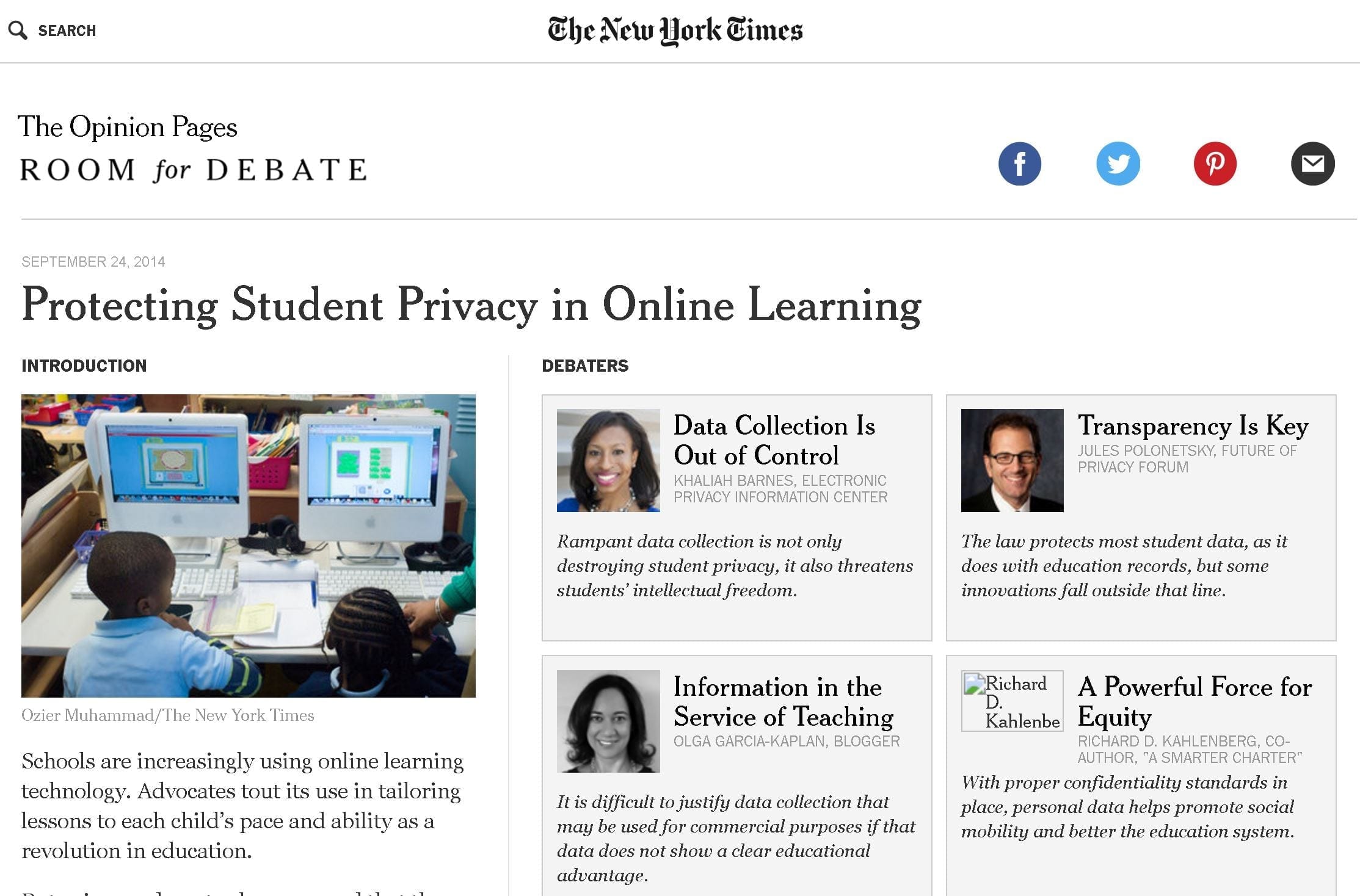Schools are increasingly using technology in a variety of settings and there is more record keeping of how students learn and information about them than ever before. Technology advocates tout its use and the ability to personalize a child’s education. Privacy advocates warn that vast amounts of personal data students generate can be misused.
In Room for Debate, The New York Times invited outside contributors to answer the question –Is the collection of data from school’s an invasion of student’s privacy?
It’s an interesting debate with contributions from Khaliah Barnes, Tyler Bosmeny, Richard Kahlenberg, Jules Polonetsky and myself.
My contribution is below:
While there are surely benefits to the collection of student data, as a parent, I am concerned about the use of my children’s personal information. Schools and districts rely on students’ personal information (and test scores, behavioral records and, sometimes, health evaluations) to conduct day-to-day operations and the state relies on it to plan policy. Access to this data is important as it can alert to warning signs of learning disabilities so they can be addressed early and efficiently.
But what is the educational goal of collecting all the other information? Don’t our students have the right to learn imperfectly, and with the privacy for trial and error? It is difficult to justify data collection that may be used for commercial purposes if that data does not show a clear educational advantage. We must consider the implications this will have on our children and their future.
Parents need to understand what data is being collected, who has access to this information and what security protocols are in place at the school, district and state level to ensure that student data is kept private and secure. In a more practical vein, schools must also make smart decisions regarding what data should be collected about students for it to be meaningful at all.
And empowering students to have a larger role in deciding what ought to be included in their educational records would improve the value of the information: students would be invested in their data — as some are with grades, for example — and not merely passive participants, harboring concerns about their privacy. As more data is collected about students, including on their strengths and weaknesses, we must ensure that we do not inadvertently punish their failures and miss celebrating their successes.


